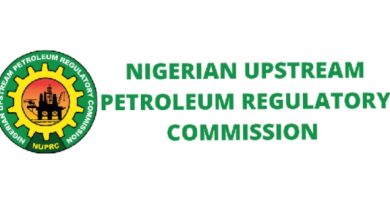Subsidy: Inflation May Rise To 30% In June, Warns KPMG
The removal of the petrol subsidy and the attendant new prices of Premium Motor Spirit popularly known as petrol across the country may push inflation to about 30% in June 2023, Yemi Kale, Partner and Chief Economist at Klynveld Peat Marwick Goerdeler, KPMG Nigeria, one of the world’s leading accounting firms has warned.
Analyzing the implications of the new petrol price on the country’s inflation figure, Kale, former Statistician-General of the National Bureau of Statistics (NBS) said the fuel price increase may add about 6 percent to Nigeria’s inflation rate increasing it to 30 percent in June 2023.
“Using the NBS Consumer Price Index CPI model and my macro model, the new PMS prices may add about 6 percent to CPI in June over whatever is reported in May, holding other things constant,” he tweeted.
“April was 22.22 percent and May is unknown and won’t be affected. So, June will be somewhere about 30 percent. Not as bad as I expected.”
The consumer price index (CPI), which measures the rate of change in prices of goods and services, climbed to 22.22 percent in April 2023 — the fourth consecutive surge in Nigeria’s inflation figure since the year started.
It would be recalled that in his inaugural speech on May 29, 2023 President Bola Tinubu had declared that the petrol subsidy payments had stopped.
Consequently, the state-owned Nigerian National Petroleum Company (NNPC) Limited adjusted the pump price of petrol across its retail outlets — a situation typical of a subsidy-free regime.
The national oil firm said the new pump price was in tandem with market realities.
Speaking on the situation, Mele Kyari, NNPC’s Group Chief Executive Officer (GCEO), on Thursday, said the removal of the petrol subsidy would promote competition and regulate consumption.
Financial Tips To Cope With High Fuel Prices
Following the decision of the Federal Government to remove fuel subsidies, an action that has seen the price of petrol hit about N500 per liter, it has become imperative to cut costs and spend less on buying the commodity.
To this effect, here are a few tips to help you save some money on fuel costs.
Put On Your Generator Less Frequently
With a liter going at N500 and more in some places, it is imperative to reduce the number of hours you put on your generating set, remember a liter is over N500, so, be wise.
Invest in alternative energy sources like solar panels, inverters, or batteries. These can provide electricity and reduce reliance on fuel-powered generators.
Use energy-efficient appliances and bulbs to minimize electricity consumption.
Adopt energy-saving habits, such as turning off lights, fans, and electronics when not in use.
Use Public Transportation Or Carpooling
Utilize public transportation options like the Bus Rapid Transit (BRT) or trains more often. These are generally more cost-effective than driving your private vehicles.
Consider carpooling with colleagues, neighbours, or friends who travel similar routes. This helps share fuel costs and reduces traffic congestion.
Avoid Long And Unnecessary Commutes
Optimize your travel routes to minimize distance and time spent on the road.
Consider remote work or flexible work arrangements, if possible, to reduce the frequency of commuting.
Explore options for carpooling or ride-sharing with colleagues or neighbours who live nearby, sharing fuel costs and reducing the number of vehicles on the road.
Use Bicycles, Scooters
For shorter distances, consider using bicycles as a mode of transportation. Cycling is not only cost-effective but also promotes physical fitness and reduces carbon emissions.
Invest in a sturdy bicycle, proper safety gear, and accessories like bike locks and lights to ensure a safe riding experience.








